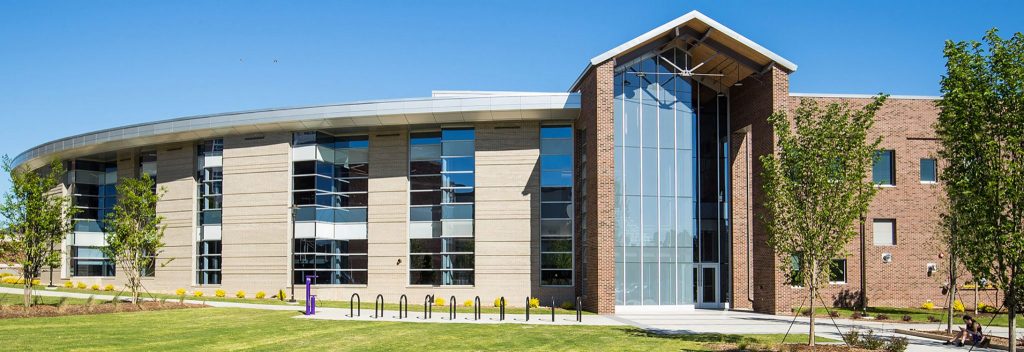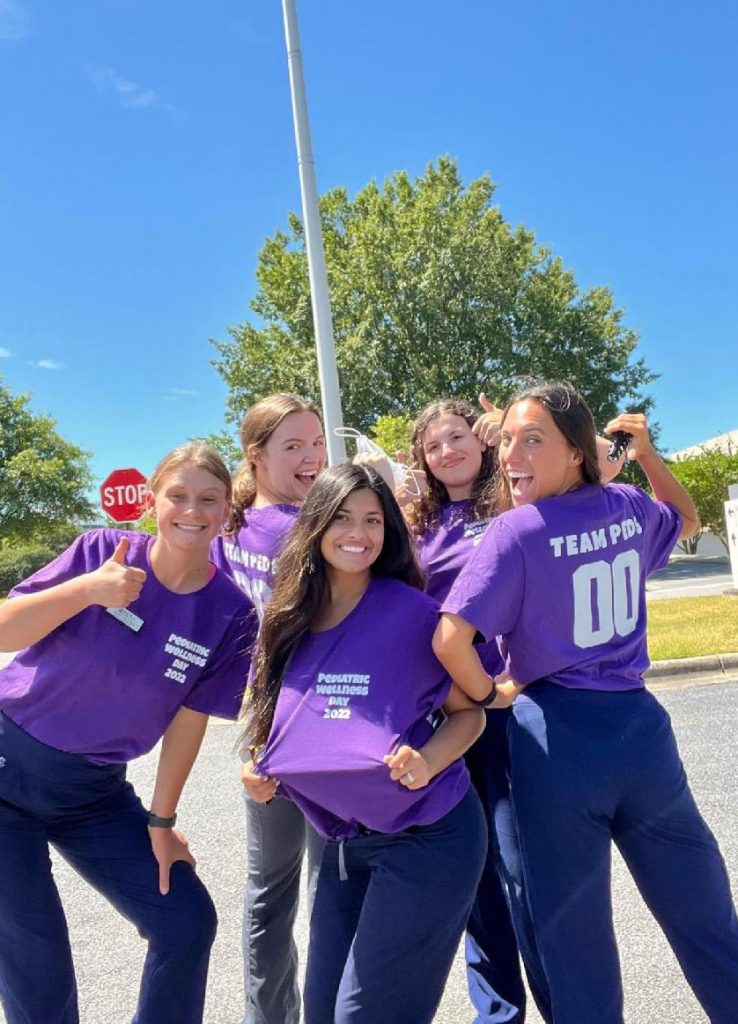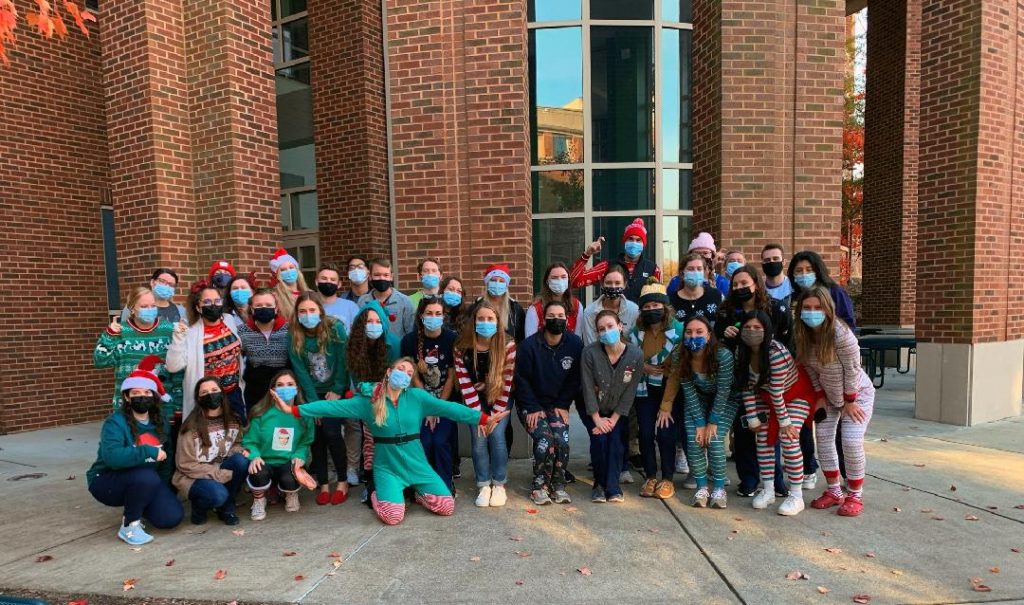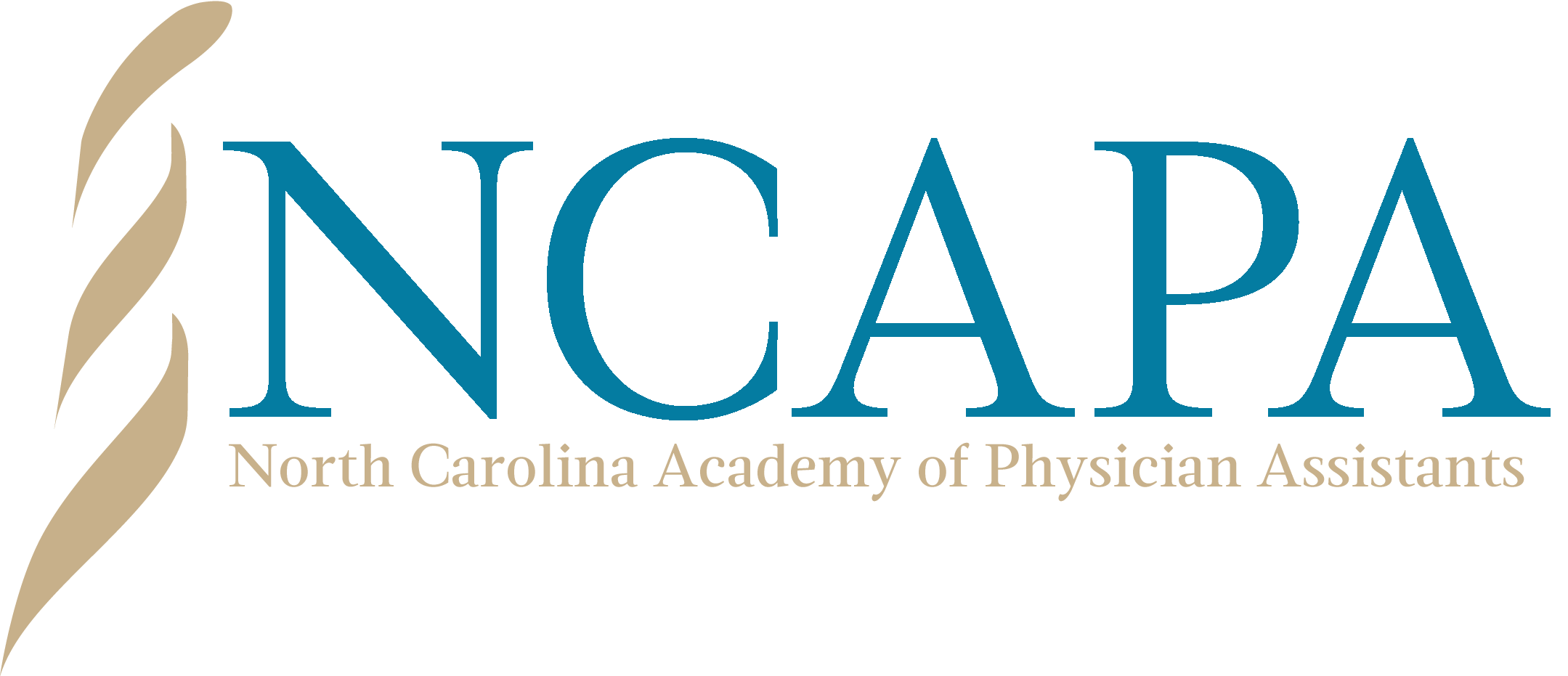by Bree Belmonte, PA-S, East Carolina University
 ECU Health Sciences Campus Student Center
ECU Health Sciences Campus Student Center
East Carolina University launched their PA program in 1996 to train providers to serve the people of eastern North Carolina. The program is centered around addressing primary care needs in the underserved rural areas of the state, specifically the eastern third. Each class of 36 students goes through 27 months of training, with 15 months of didactic curriculum across four semesters and 12 months of clinical rotations. As part of the College of Allied Health Sciences, ECU PA students have opportunities throughout the didactic year to interact and work with students in other health professions programs to foster interprofessional collaboration in their future practice.
The first semester consists of two one-semester courses, Anatomy and Physiology, and three of the four core classes: Clinical Medicine, History & Physical Exam, and Pharmacology. The fourth core class, a unique blended-learning course called Diagnostic Methods, begins in the second semester in the spring. Students continue the four core classes into the summer. These core classes are roughly aligned into blocks, with the first semester in the fall focusing on dermatology, infectious diseases, HEENT, and orthopedics; the second semester in the spring on pulmonology, cardiology, gastroenterology, nephrology, and hematology; and the third semester in the summer on neurology, endocrinology, women’s health, pediatrics, and geriatrics. The fourth semester of didactic year, in the second fall semester, includes Introduction to Clinical Practice, Behavioral Medicine and Psychosocial Issues in Healthcare, Surgery and Emergency Medicine Skills, and Evidence-Based Medicine. Additionally, each semester of the didactic portion includes a course called Principles of Professional Practice, where experts in various areas are invited to speak on social, legal, and ethical issues that intersect with medicine and affect clinical practice.
The 12-month clinical portion of the program consists of ten clinical rotations and over 1900 patient contact hours, as well as a course designed to bridge students into clinical practice. In order to embody ECU’s mission of serving the local populations, the clinical rotations are primarily in eastern North Carolina. The core rotations are Behavioral Medicine, Internal Medicine, Family Medicine, General Surgery, Emergency Medicine, Pediatrics, Women’s Health, and Geriatrics. Internal Medicine and Family Medicine are 8-week rather than 4-week rotations. Students are also given at least one elective rotation, with the opportunity to do this internationally. Additionally, the program was awarded a HRSA grant for 2020-2024 to expand access to behavioral medicine services in underserved areas of eastern North Carolina. Because of this funding, 13 clinical students will perform their family medicine rotations at specific sites involving additional mental health services training (including medication-assisted treatment, or MAT, certification) and closer interprofessional collaboration between primary care and mental health providers. The goal is to improve patient access to behavioral health services and better prepare primary care providers to address patients’ mental health needs during their clinical training.
 PA students volunteering at ECU’s Pediatric Wellness Day
PA students volunteering at ECU’s Pediatric Wellness Day
ECU Physician Assistant Student Society (PASS)
When beginning the program, each student is elected by their peers to a role within the ECU’s PA student society. There is a president, vice president, secretary, treasurer, and historian, as well as student representatives to the AAPA, NCAPA, the ECU College of Allied Health Sciences Student Council, and the Pitt County Care Clinic. Every Sunday, PA students from ECU volunteer to provide free medical care at the clinic for uninsured or otherwise qualifying patients in the local area. There are also several committees, each featuring a chair and several members, including fundraising, social, graduation, and community service. The community service committee works with the nearby Ronald McDonald House most frequently, but also sends volunteers to events like the recent Pediatric Wellness Day, where they performed free screenings for pediatric patients in eastern NC. Every year, the fundraising committee creates t-shirts to sell to the incoming class in order to fund PASS activities not otherwise covered by dues. Other positions are the external affairs chair, diversity chair, financial aid chair, and intramural chair (ECU PA students perform best at basketball and volleyball). Last–but certainly not least–are the class organizers who ensure everyone knows where to be and when every day.
 Class of 2023 wearing their best Christmas PJs and/or sweaters to celebrate the holiday before heading into finals and winter break.
Class of 2023 wearing their best Christmas PJs and/or sweaters to celebrate the holiday before heading into finals and winter break.
Classes of 2022, 2023, and 2024
The class of 2022 is in the thick of clinical year, with half of their rotations completed, and are looking forward to graduation in December. The class of 2023 is finishing a speedy third semester of didactic year, preparing for an intense fourth semester and the start of the clinical year in January. That being said, students find ways to spend time together outside of the classroom as well as in it, whether that be relaxing at Pitt Street Brewery in downtown Greenville or competing in a team-building ropes obstacle course on a Saturday morning. ECU PA students find time to serve others, whether that be the lucky few 2023 students working alongside PT students in the pilot year of ECU’s new interprofessional clinic, or as part of the yearly international medical volunteer trip to Honduras conducted every winter break. And as for the class of 2024 – we are so excited to welcome them to Greenville in August!

